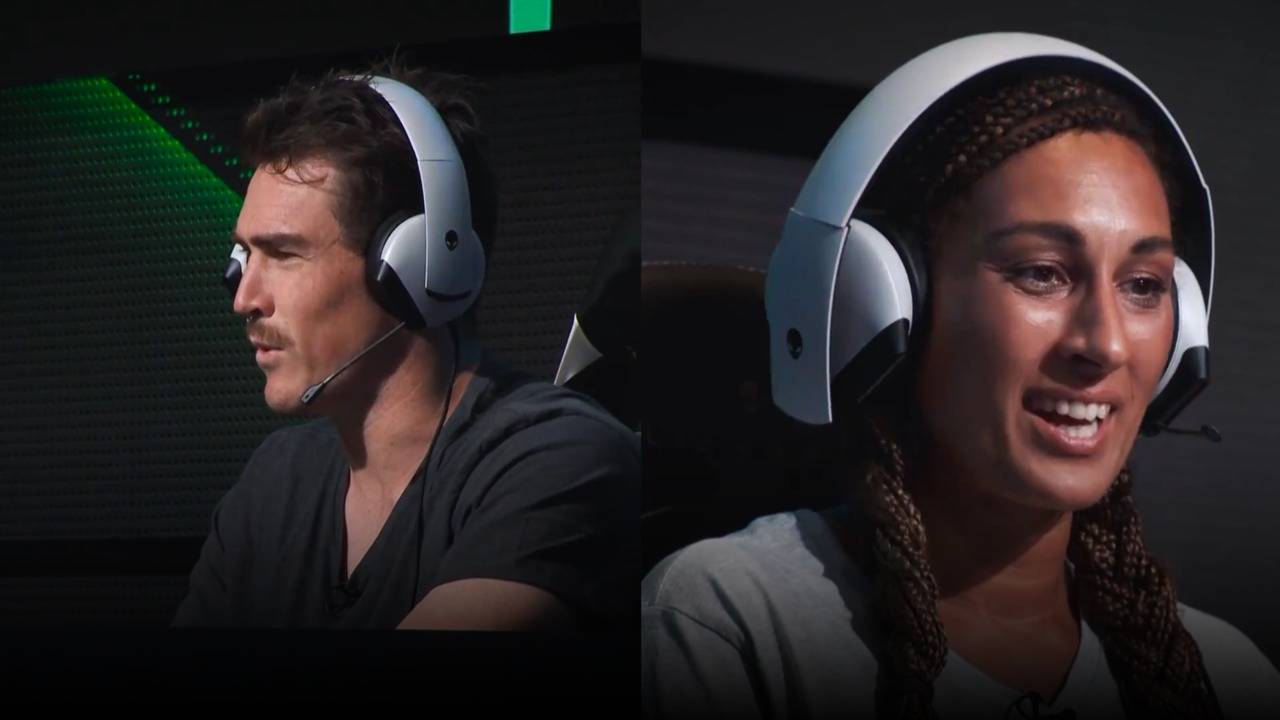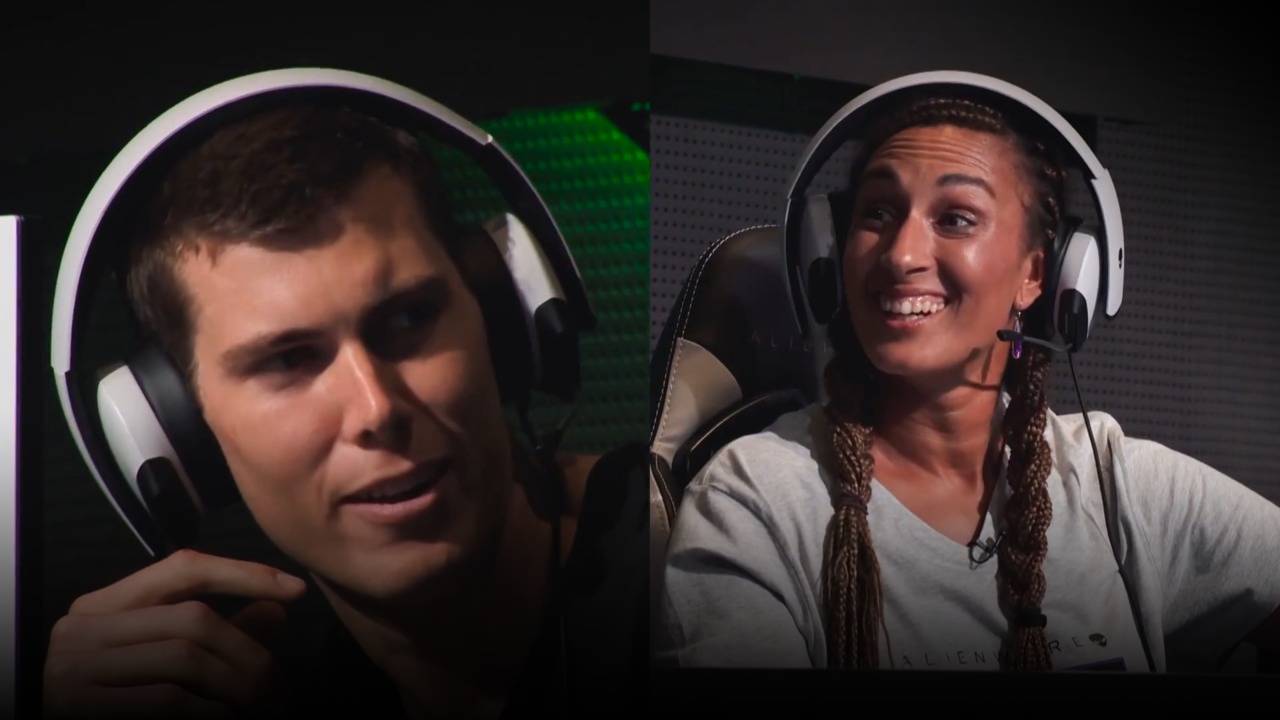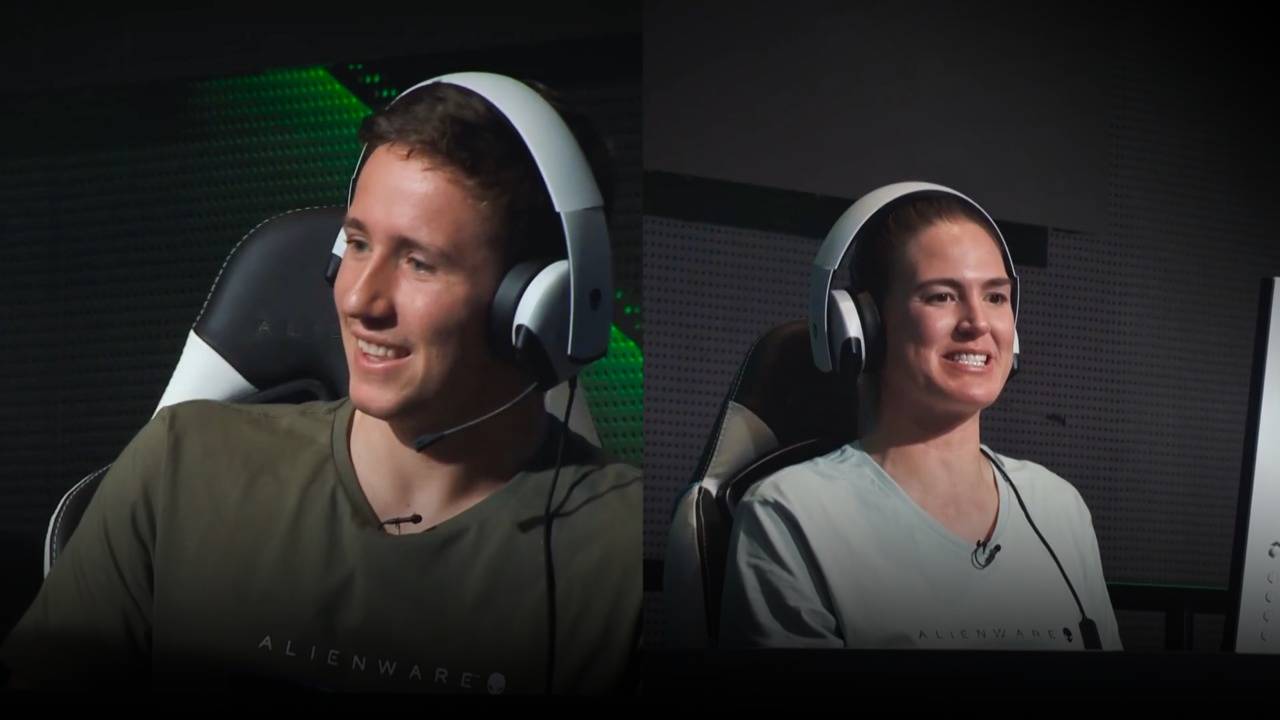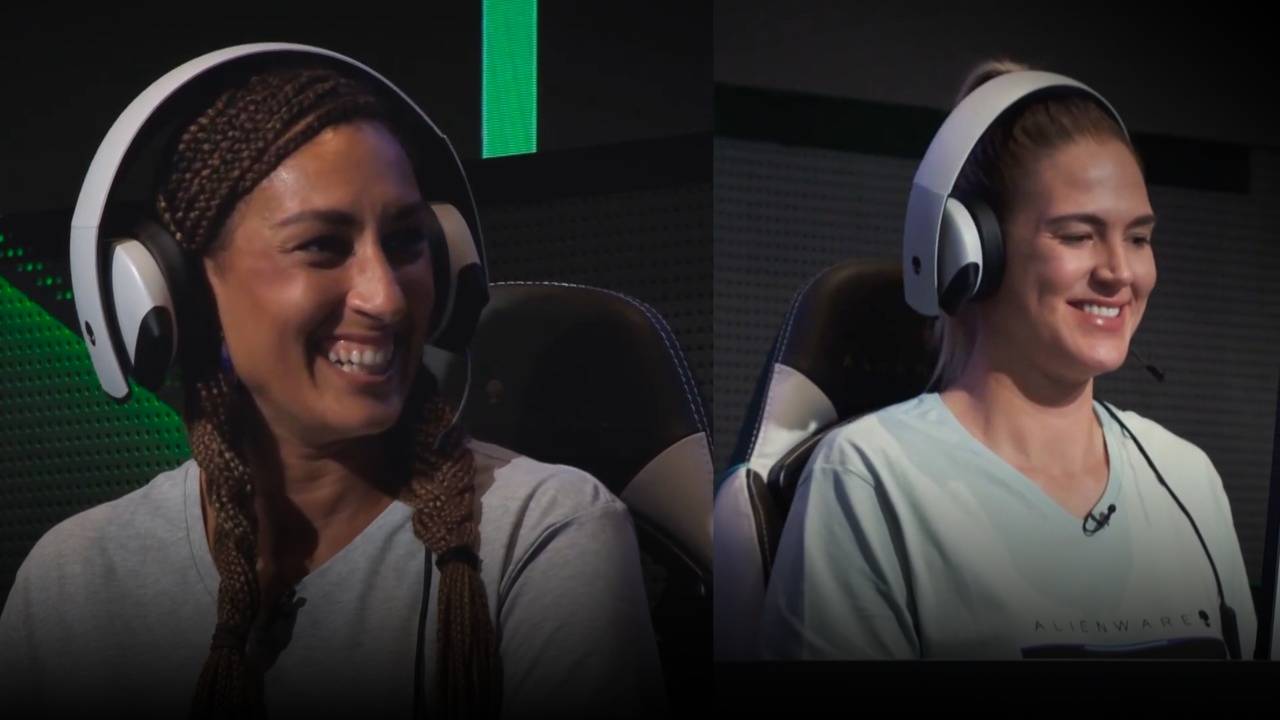Netball
It’s not women’s sport. It’s Sport
Women’s sport. I’m so sick of talking about it. We’ve got to move past that divide. It shouldn’t matter whether it’s a man or a woman playing. It’s just sport.
People ask me if, because of my netball background, I’m worried about the AFLW. Absolutely not. It’s bloody fantastic because it’s normalising people watching women play sport. That’s why the last 12 months have been so incredible. Super Netball was launched along with a ground-breaking pay-deal, the AFLW was a huge success, the Matildas won the Tournament of Nations and our women’s Rugby Sevens team won Olympic Gold. It doesn’t get better than that.
Netball is a sport that has battled all sorts of misconceptions about what it means to be a female athlete but now we don’t have to do it alone. Now there is an understanding that women can play sport and it’s entertaining and cool to watch.
When I was a young girl, growing up in Sydney’s west, there weren’t many female athletes to look up to. I used to want to play rugby league because that was the only sport on television. My mum had to take me aside and explain why adult men and women can’t play contact sport together. That was shattering for me. As a 10-year-old, I couldn’t have those dreams of playing professionally. But my little girl will grow up in a completely different world.
‘BOYS ARE TOO BUSY IRONING’
I was watching the 2016 Olympics with my daughter Evelyn, who was four at the time. The Hockeyroos, Opals and our women’s Sevens team were all competing at the same time and we were flicking between the channels. She turned to me and said, “Mummy, why don’t boys play sport?” I joked, “Darling, it’s because they’re too busy ironing”. That’s when I knew we’d turned a corner.
She watched the Sevens final and now we play rugby in the backyard. People think I must want her to play netball but I don’t care. She has so many options to choose from. It’s so exciting.
Another time, we were lying in bed and my husband was looking at the news on his iPad when my little girl came into bed with us. He found a highlight reel of the Matildas beating Japan and showed it to her. At the end, one of the players did a cartwheel after scoring a goal and Evelyn thought it was unreal. Suddenly she’s a Matildas fan and she’s dreaming of scoring incredible goals like Sam Kerr.
Now there is an understanding that women can play sport and it’s entertaining and cool to watch.
I wish I’d had that. I suspect I would have eventually chosen netball anyway but I would have loved to have had a number of sports to try out. I couldn’t go on YouTube or flick on the tele and see women playing at the highest level. Now I know what it’s like to be a little boy – there are so many sporting heroes you can look up to.
It’s getting to the stage where girls can be themselves. One of the criticisms that I had of netball over the years, is that we always presented ourselves as so well behaved, so nice, so presentable. Which is lovely, but it doesn’t get people interested, it doesn’t hook people into the sport or capture children’s imaginations.
People want big personalities and they want to follow athletes that they can identify with. Not everyone is perfect and it’s so important that netball encourages our athletes to be themselves. I think we’re getting better at this. If you’re a kid with a big personality, there is a place for you in our sport.
This isn’t just about the girls. I hope boys can look at the netballers and want to be like us too.

NETBALL TO OVERTAKE RUGBY
Right now, the top two sports in Australia are AFL and rugby league, followed by football and rugby union. I see rugby really struggling in the years to come and I’d love to see netball step up to take its place in the next 20 years.
I think Super Netball will be considered a top-tier competition with players that are household names. The squad sizes will have been increased to 12, because the sport is no longer trying to save money and the players who are on the minimum wage will be fully professional, earning $100,000 a year.
Ten years ago, while helping us set up the Netball Players’ Association, Bill Shorten suggested that $25,000 would one day be the minimum wage. We laughed at the time but it has happened. And now I don’t see why my wildest dreams can’t be achieved.
Why can’t we have a number of fully-professional women’s sporting competitions that are well-loved by Aussie fans?
I’d like to see a fully professional AFLW competition that is well supported and a women’s Big Bash that gets as many viewers as the men’s BBL. In 20 years’ time, I think that can be the case.
One of the criticisms that I had of netball over the years, is that we always presented ourselves as so well behaved, so nice, so presentable. Which is lovely, but it doesn’t get people interested, it doesn’t hook people into the sport or capture children’s imaginations.
I want our female athletes to be as well-known as our male athletes and for there to not be any pressure on them to be perfect. Male athletes sometimes screw up but they are forgiven much more easily. Women should be able to be just as badly behaved!
It’s called the Madonna-Whore complex – a woman is either perfect or she is totally discarded and treated with disgust. I don’t want to suggest that sport can solve all of society’s ills, because it simply can’t, but it can be a real thought leader and help to drive change.
THE NEXT FIVE YEARS
As I mentioned at the top of this column, I don’t want to talk about ‘women’s sport’ anymore. In the next five years we should stop putting our female athletes in that sub-category. I call on the Australian media to set that standard and not differentiate between genders anymore. It is just sport.
We’ve got a really strong platform to build on now. We bashed along for such a long time and suddenly women’s sport is beginning to get the attention it deserves. Some people seem to think it has happened overnight but there has been so much work done by so many people to get to this point.
I don’t care if people are jumping on the bandwagon now that women’s sport is ‘suddenly’ fashionable, I think it’s fantastic. It’s then up to the sport to keep them engaged and I think netball does a pretty good job of that.

There’s a huge battle for talent going on – you have to look after your senior athletes in order to attract the best talent to your sport. Netball Australia want to have a fully-professional competition within the next five years and that has to be achieved. Right now, netball can rightly say that it is ahead of the game but the challenge is to stay ahead.
I look at the AFLW and the pitiful amounts that those women were paid – someone’s making money off them, so that’s an issue that the players will need to address. That challenge is there for all sports. If you’re a sport, a lot of your survival depends on what your participation rates are at the grassroots level. If you have a good pathway for young female athletes to join the professional ranks, then the best athletes are going to gravitate towards your sport.
It also shows parents that you are a well-run organisation and they should register their kids to play your sport. Netball Australia have that in mind and that’s why they put so much effort into getting the Super Netball contracts right and why they trumpeted it so loudly when the collective bargaining agreement was announced. We are the best-paid league for female athletes in Australia. Netball is streets ahead of the game.
The 2016 pay deal also set netball up as a world leader – you won’t find maternity provisions like that anywhere else. It’s inspiring for women to see an organisation providing that. I’m sure a lot of women will look at it and think, “That’s awesome and it should be happening in my work place”. Hopefully they go and agitate for that to happen.
Netball NSW did such a great job in the way they dealt with Rebecca Bulley in her comeback with the Giants. Her little girl was never far from her side, which is fantastic when you’re a new mum. That’s just a one-off. We need the competition to run for a few years so we can make sure that all parties live up to their end of the bargain.
Ten years ago, while helping us set up the Netball Players’ Association, Bill Shorten suggested that $25,000 would one day be the minimum wage. We laughed at the time but it has happened. And now I don’t see why my wildest dreams can’t be achieved.
As a solicitor, I saw law firms lose women that they had invested tens of thousands of dollars of training into, all because they weren’t smart about looking after women who wanted to have kids. As a result, there was this huge, experienced workforce that wasn’t being utilised. With netball leading the way, we’re starting to fix that.
I also think men need to push hard to get time off when their kids are born to spend time with them and to be primary carers. It’s great for blokes to see that there is a place for them. The primary carer who travelled with Rebecca and her daughter was Rebecca’s husband. It’s changing the narrative around gender roles.
SPORT WITH A HANDBRAKE ON
Netball was very, very amateur when I started playing in the senior national league in 1991. There was no dream of being paid. It’s extraordinary to think how far we’ve come. There was a ‘Women’s Sport’ page in the newspaper but it was very much the editor’s way of saying, ‘Give the little ladies some space and hopefully they’ll stay there quietly’.
There are plenty of stories about how tough it was to survive as a female athlete during that era. You only have to speak to someone like Layne Beachley, who had to work numerous jobs just to get herself onto the circuit and pay for all the travel, to get an idea of what was required.
When I first joined the senior playing ranks I studied and worked full time. I remember getting up to go to the gym before work, seeing the stars and thinking this is just crazy. What was I doing to myself? It was the only way I could do it – up at 5am, on the train, into the city, go to the gym, be sitting in the office by 8am to start my job and then training after work.
One of my teammates who lived in Newcastle and worked in a law firm used to drive two hours to training and two hours home, two or three times a week. One night she fell asleep in the car on the way home and woke up in a paddock. Thank God, she didn’t hit a tree or another vehicle.
You just became used to operating under this fog of fatigue. I never felt like I was doing anything at 100 per cent. I always felt like I was short-changing both my legal and netball careers. It was like trying to play sport with a handbrake on. Your recovery was impeded, your sleep was impeded, all the little things that go into producing a good performance.
Despite how tough it was, I learned very early on not to get caught up in the hardships. I didn’t want to let that define my career. I’m uncomfortable talking about sacrifice as a concept now. Since I became a mum the word has taken on entirely different meaning. When you’re an athlete you can afford to be pretty selfish. It was difficult at the time but the things I got to do and the friends I made are so special to me. I wouldn’t swap those experiences and those World Cups for anything.
But thank God there was no such thing as social media back then. We used to be so naughty. If we had a game on a Friday it was an opportunity to plan a weekend away – we used to have a real laugh. The players don’t get to do that now, everything is so regulated. They’ve got to play their game, come home and do their recovery. There’s a flip side to the professionalism. They don’t have the freedom that we had.
More about: Diamonds | Liz Ellis | Netball World Cup | Rugby Sevens | Super Netball | Super Rugby | Women's Sport






 Load More
Load More